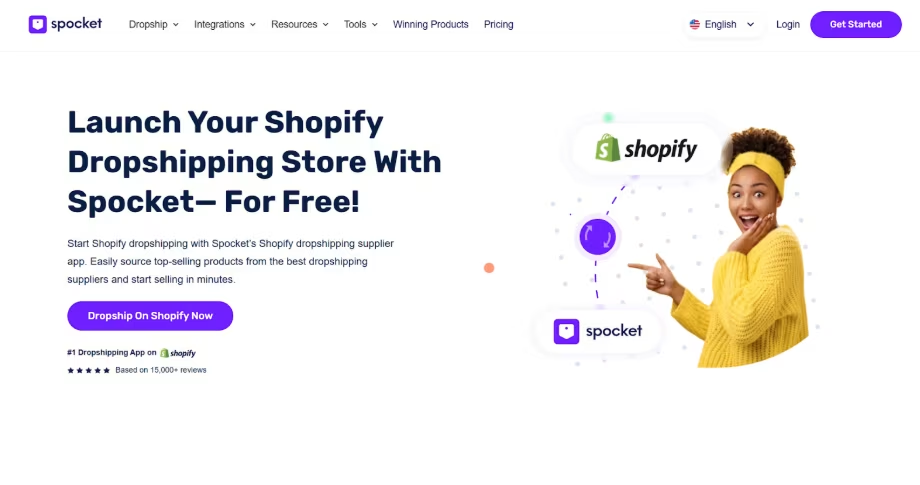In today’s digital-first world, running an online business is no longer just about having a website or a Shopify store. While eCommerce offers unmatched opportunities, it also comes with a set of legal responsibilities that every entrepreneur must understand. Online business laws and regulations are designed to protect consumers, ensure fair competition, and create a trustworthy digital marketplace. Ignoring them can lead to fines, lawsuits, or even the shutdown of your business.
With global markets, tax regulations, data privacy laws, and consumer protection rules varying by country, it’s essential for online entrepreneurs to stay informed. This article provides a comprehensive guide to understanding, navigating, and complying with online business laws and regulations, ensuring long-term growth and sustainability.
Why Online Business Laws Matter
Running an online business is more than just listing products or services on a website; it’s about conducting business responsibly and ethically. Compliance with online business laws is not just a bureaucratic formality—it’s a crucial part of protecting and growing your business.
1. Protects Your Brand and Reputation
When a business follows legal regulations, it avoids lawsuits, fines, and other legal disputes that can tarnish its image. A single violation, like mishandling customer data or selling unauthorized products, can result in public backlash or a negative online reputation. On the other hand, being compliant shows that your business operates professionally and values ethical standards.
2. Builds Customer Trust
Customers are increasingly aware of online privacy and the authenticity of products they buy. When you follow regulations such as GDPR for data protection, display clear return and refund policies, and ensure product authenticity, you signal reliability and transparency. This trust encourages repeat purchases and fosters long-term customer relationships. In fact, businesses that implement GDPR-compliant systems have reported a 20% increase in customer trust and repeat purchases, according to ICLG.
3. Reduces Financial Risk
Non-compliance can lead to hefty fines, lawsuits, or forced shutdowns of your business. By adhering to eCommerce laws and regulations, you avoid these financial risks and ensure that your profits aren’t eaten up by penalties. This is especially important for small businesses and startups, where a single fine can have a significant impact.
4. Supports Sustainable Growth
Online laws aren’t meant to restrict your business—they provide a framework for safe expansion. Compliance allows you to scale globally, sell across borders, and integrate international payment systems without running into legal issues. For example, adhering to tax laws, consumer protection rules, and intellectual property regulations ensures that your business can operate smoothly in multiple markets without facing roadblocks.
Key Online Business Laws You Must Know
Running an online business means navigating a variety of laws and regulations that ensure your operations are legal, ethical, and secure. These laws cover everything from how you handle customer data to how you advertise and sell products. Understanding them is crucial not only to avoid fines and legal trouble but also to build trust with your audience.
Being well-versed in these key laws ensures that your business operates responsibly, protects your customers, and remains prepared for expansion across borders. This knowledge can also prevent costly mistakes, such as intellectual property disputes or violations of advertising standards, which could harm both your finances and your brand reputation.
Data Privacy and Protection
One of the most critical areas for online businesses is data privacy. As eCommerce transactions involve collecting customer information like names, addresses, payment details, and browsing behavior, ensuring this data is protected is non-negotiable.
- GDPR (General Data Protection Regulation) – Applies to businesses handling data of EU citizens. Requires explicit consent, secure data storage, and clear privacy policies.
- CCPA (California Consumer Privacy Act) – Protects residents of California with rights to access, delete, or opt-out of data collection.
- India’s IT Act 2000 – Governs data protection and cybersecurity measures for Indian businesses.
Example: Companies failing to comply with GDPR have faced fines exceeding €20 million. Using secure platforms and verified suppliers like Spocket can help protect customer data during transactions and shipping.
Application Tip: Always include a clear privacy policy on your website and use encryption tools for payments and user data.
Intellectual Property Rights
Your brand, logo, content, and products are valuable intellectual property (IP). Online businesses must protect their IP while respecting the rights of others.
- Trademarks – Protect brand names, logos, and slogans.
- Copyrights – Protect creative content such as images, videos, and written materials.
- Patents – Protect unique product designs or inventions.
Example: Dropshipping stores sourcing from unauthorized suppliers may face copyright or trademark infringement issues. Partnering with verified dropshipping suppliers like Spocket ensures products are authentic and legally compliant.
According to the World Intellectual Property Organization (WIPO), over 50% of eCommerce disputes relate to IP infringement.
Application Tip: Conduct an IP audit before launching your store and register trademarks where applicable.
Consumer Protection Laws
Consumer protection is crucial for maintaining trust in online businesses. These laws ensure buyers are informed and treated fairly.
- Transparent Product Information – Accurate descriptions, pricing, and availability.
- Refund and Return Policies – Clear and accessible to avoid disputes.
- Safe Payment Practices – Secure payment gateways and fraud protection.
Example: India’s Consumer Protection (E-commerce) Rules 2020 mandates online sellers to provide clear product information and refund policies. Violations can result in fines or legal action.
Application Tip: Display refund and return policies prominently on your website and confirm that suppliers provide genuine products.
E-commerce Taxation
Taxes can be one of the most complex areas for online businesses. According to a survey by Avalara, 42% of small online businesses reported tax compliance as their biggest regulatory challenge.
These include sales tax, VAT, GST, and digital services taxes depending on your location and where your customers reside.
- India: GST applies to online sellers, including marketplaces and dropshipping businesses.
- U.S.: Sales tax obligations vary by state; businesses must register and collect taxes in states where they have nexus.
- EU: VAT applies to B2C sales in member states, with thresholds for registration.
Example: Prebuilt Shopify stores integrated with Spocket often provide GST-inclusive invoices, simplifying tax compliance for Indian sellers.

Advertising and Marketing Compliance
Digital marketing is essential, but compliance is key. Misleading claims, false advertising, or hidden fees can lead to legal consequences.
- FTC Guidelines (U.S.) – Influencers must disclose paid promotions.
- EU and UK Regulations – Ads must be honest, clear, and not misleading.
- India’s Consumer Protection Act 2019 – Ensures transparency in advertisements.
Example: If your Shopify store uses influencer marketing, disclose partnerships clearly in posts. Non-compliance can result in fines or public backlash.
Application Tip: Maintain an “ad compliance checklist” and review campaigns before publishing.
Steps to Ensure Legal Compliance
Running an online business comes with significant legal responsibilities. Ensuring compliance is not just about avoiding fines—it also protects your brand, builds customer trust, and makes scaling easier. Here’s a detailed look at the critical steps you need to take:
1. Register Your Business Legally
The first step in establishing legitimacy is choosing the appropriate business structure. Options include LLCs, private limited companies, or sole proprietorships, depending on your goals and local regulations. Proper registration ensures your business is recognized legally, making contracts enforceable and protecting personal assets from business liabilities.
2. Understand Local and International Laws
Selling online often means reaching customers across borders. This requires research into local consumer protection laws, eCommerce regulations, taxation, and import/export rules for every country you operate in. For example, the EU enforces strict consumer rights laws, while the US has different tax requirements depending on the state. Awareness of these rules avoids costly legal conflicts and potential business shutdowns.
3. Implement Privacy Policies
Data privacy is a cornerstone of online business compliance. Every online store should clearly communicate how customer data is collected, stored, and used. This includes adhering to regulations such as the General Data Protection Regulation (GDPR) in Europe or similar privacy laws elsewhere. Transparent privacy policies increase customer confidence and reduce the risk of penalties for mishandling personal data.
4. Protect Intellectual Property
Your brand and content are valuable assets. Registering trademarks, copyrights, and patents protects your business from infringement and ensures your products are legally sourced. This also extends to respecting third-party intellectual property to avoid legal disputes, which can be costly and damage your brand reputation.
5. Use Verified Suppliers
Partnering with legally compliant suppliers is essential for online businesses, particularly dropshipping. Platforms like Spocket offer verified US and EU suppliers who provide authentic products and follow regulatory standards. Using these suppliers ensures that your inventory is legally sourced, and delivery standards meet customer expectations.
6. Monitor Advertising Compliance
Marketing campaigns must follow advertising regulations to avoid misleading claims or unfair practices. Regularly reviewing ads, emails, and social media promotions ensures that your campaigns comply with local and international advertising standards. This safeguards your brand against lawsuits and negative publicity.
7. Maintain Records
Accurate record-keeping is crucial for tax filings, contracts, and potential legal audits. Maintain invoices, receipts, and contracts in organized formats. Having these records not only helps in legal compliance but also provides insights into your business operations, aiding decision-making and transparency.
Common Mistakes to Avoid in Online Business
Running an online business comes with its legal and operational challenges. Avoiding common pitfalls is critical not only to stay compliant but also to build credibility and long-term success. Here’s an elaboration on the mistakes many entrepreneurs make:
1. Using Personal Numbers or Contact Info Instead of Professional Channels
Relying on personal email addresses or phone numbers can make your business look unprofessional and compromise privacy. Dedicated business communication channels help separate personal and business matters, protect sensitive information, and enhance customer trust.
2. Ignoring Privacy and Intellectual Property (IP) Laws
Failing to implement privacy policies or respect IP laws can lead to fines, lawsuits, and reputational damage. Always ensure customer data is handled according to laws like GDPR, and avoid using copyrighted content without permission. Protecting your own IP, like logos, content, and product designs, is equally important.
3. Skipping Supplier Verification
Working with unverified suppliers exposes your business to counterfeit products, delayed shipments, or legal liabilities. Using verified suppliers, such as those on Spocket, ensures products are authentic, legally sourced, and shipped reliably, which safeguards your brand reputation and customer satisfaction.
4. Neglecting Tax Registration or Reporting
Many online entrepreneurs overlook the importance of registering for taxes or correctly reporting sales. Non-compliance can result in hefty penalties and disrupt operations. Understanding local and international tax obligations is essential for smooth business operations.
5. Overlooking Advertising Compliance and Transparency
Misleading advertisements or non-compliant marketing campaigns can attract legal action and damage trust. Ensure your promotions, email campaigns, and social media ads adhere to local and international regulations, providing honest and clear information to customers.
Tips for Continuous Compliance
Running an online business is not a one-time effort when it comes to legal compliance—it’s an ongoing responsibility. Staying proactive ensures your business avoids penalties, maintains customer trust, and scales safely. Here’s how to integrate continuous compliance into your operations:
1. Regularly Audit Your Store for Legal Compliance
Conduct periodic reviews of your website, product listings, payment processes, and marketing campaigns. This helps identify any gaps in privacy policies, consumer rights notices, or intellectual property usage before they become legal issues.
2. Stay Updated with Changes in International and Local eCommerce Laws
Laws evolve constantly, especially for global online businesses. For example, GDPR updates in Europe or new taxation rules in India can impact your operations. Subscribing to legal updates from reputable sources like ICLG ensures you remain informed.
3. Invest in Legal Consultation or Compliance Tools
Professional legal guidance or automated compliance software can save your business from costly mistakes. These tools can check for issues like tax obligations, privacy policy gaps, or advertising compliance, reducing the risk of fines.
4. Educate Your Team
Ensure your employees understand data privacy, consumer protection laws, and marketing regulations. Regular training sessions foster a culture of compliance and reduce the chances of unintentional violations.
Example: Businesses that implement automated compliance software and regularly educate their team report a 60% reduction in regulatory fines, according to Amasty.
Maintaining continuous compliance not only protects your business from legal risks but also strengthens your brand’s credibility and fosters trust with customers. By making compliance a part of your operational routine, your online business becomes more resilient, scalable, and prepared for international expansion.
Conclusion
Understanding online business laws and regulations is vital for any eCommerce entrepreneur. Compliance ensures that your Shopify or dropshipping store operates smoothly, protects customer trust, and avoids costly legal issues. By using verified suppliers like Spocket, following GDPR and consumer protection rules, and implementing clear advertising and tax practices, you can create a secure and professional online business.
Operating legally is not just about avoiding penalties—it’s about building a brand that customers trust, creating long-term growth, and expanding globally without unnecessary risk. A proactive approach to legal compliance is an investment in your business’s reputation, profitability, and sustainability.





































